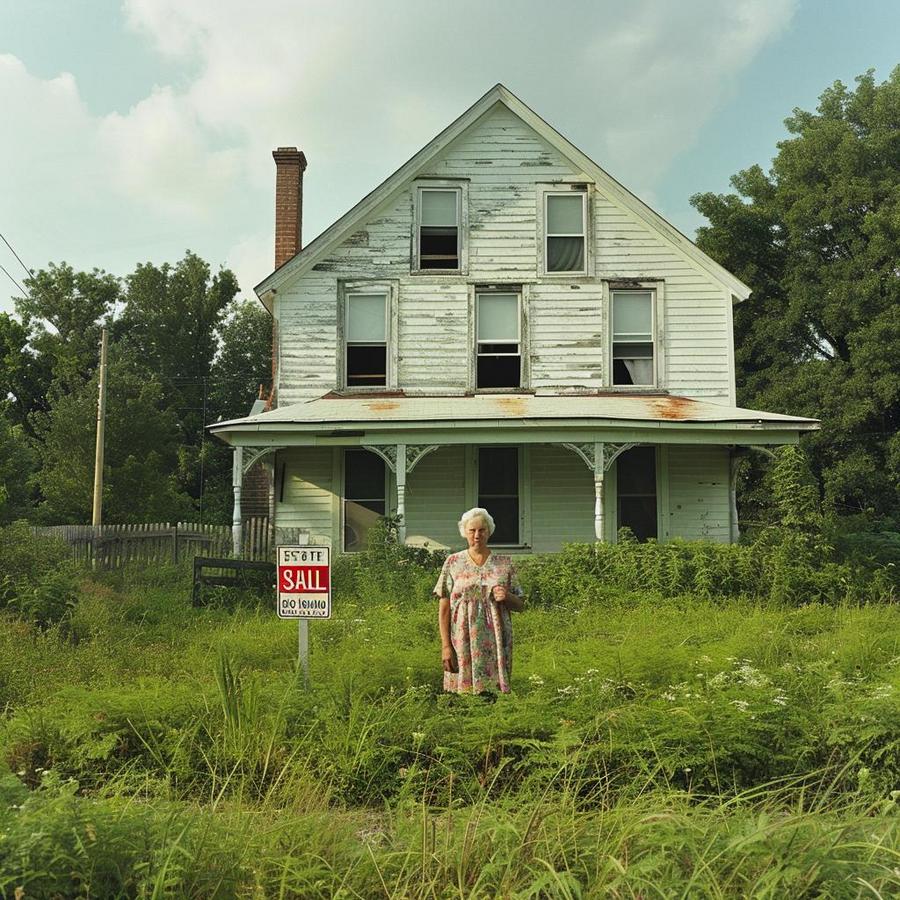So you’re wondering if you can actually sell your house with a failed septic system? Trust me, you’re not the only Richmond homeowner staring down this problem. Here’s the thing—it’s definitely possible, though it might take some creative thinking to get a fair deal. Let me walk you through what I’ve learned about the legal stuff, how it affects your price, and finding buyers who won’t run away screaming. Whether you’re thinking about listing the traditional way or need to sell my house fast in Richmond, there are some practical moves you can make.

What Is a Septic System and Why It Matters When Selling
Quick primer: your septic system basically handles all the wastewater from your house using a tank and something called a drainfield. The wastewater goes into the tank, the heavy stuff sinks to the bottom, and the liquid part flows out to the drainfield. The soil there acts like a natural filter. When things go wrong? That’s when you start noticing problems. Maybe there’s a smell that won’t go away. Or you’ve got that one spot in the yard that’s always soggy, even when it hasn’t rained in weeks. Your toilets might start backing up regularly. These aren’t just annoyances—they’re red flags that could send potential buyers running, and in some cases, you might have to fix things before you can legally sell.
- That unmistakable sewage smell (inside or out)
- A swampy mess near where your drainfield should be
- Drains that take forever or toilets that keep backing up
- That one patch of grass that looks like you’ve been fertilizing it daily
Legal Considerations and Local Laws
Can you actually sell with a busted septic? In most cases, yes—but it really depends on where you live. Virginia doesn’t have one blanket rule; each county seems to have its own take on this. Some places might require you to fix everything before selling. Others? They’re fine as long as you tell buyers what they’re getting into. Your best bet is probably checking with your local health department first. A good agent who knows selling a house in Virginia can help you figure out exactly what you need to disclose and keep you from getting sued later.
Impact on Marketability and Buyer Pool
Let’s be honest here—a failed septic system isn’t exactly a selling point. Most regular buyers (especially first-timers) will probably pass. Your house might sit on the market longer than you’d like. The offers that do come in? They’ll likely be lower than you hoped. But here’s where it gets interesting: investors and cash buyers often see these situations differently. They’re used to dealing with problems, and some actually prefer properties they can fix up and flip. Sure, they’ll want a discount, but at least they won’t ghost you when they hear “septic issues.”
Recognizing Signs of Septic System Failure

Beyond the obvious smell, keep an eye out for water pooling where it shouldn’t. I’m talking about that spot near your septic tank that turns into a mini-swamp after you do laundry. Or maybe your kitchen sink gurgles when someone flushes upstairs. These little things? They’re your septic system crying for help. Catching problems early could save you thousands—and make your house a lot easier to sell.
Options for Dealing With a Failed Septic System Before Selling

You’ve got a few choices here, none of them particularly fun. Sometimes you can get away with just fixing one part—maybe the pump died or a pipe cracked. That might only set you back $500 to $3,000. But if the whole system’s shot? You’re looking at anywhere from $7,000 to $15,000, possibly more if your property has weird soil or drainage issues. There’s also a third option if you’re lucky: connecting to the city sewer. Though between permit fees and the actual connection work, this isn’t necessarily cheaper.
The Financial Implications of Selling a Home With Septic Issues
Adjusting Sale Price for Septic Problems
Buyers aren’t just thinking about repair costs—they’re calculating everything. Let me break down how an investor might look at this:
Real example: Say your neighbor’s similar house just sold for $250,000. Yours needs a $12,000 septic replacement. An investor won’t just subtract $12,000. They’re probably thinking: $12,000 for the septic, maybe $8,000 for carrying costs while they fix and resell it, plus they want to make at least $15,000 profit for their trouble. Suddenly their offer is around $215,000.
Is it frustrating? Absolutely. But understanding their math can help you decide if an offer is reasonable or insulting. Sometimes working with buyers who handle sell my house fast in Virginia Beach deals makes sense if you need to move quickly.
The True Cost of Septic System Replacement for Sellers
It’s not just buying a new tank. They have to dig up your yard, haul away the old system, possibly redo the entire drainfield. If your property has rocky soil or high groundwater? Add more zeros. And if you’re thinking about that sewer connection instead—well, that could be just as pricey once you factor in all the permits and street work.
How to Sell a House “As-Is” With a Septic System Problem
Disclosures and Legal Requirements
Look, trying to hide septic problems is probably the worst thing you could do. Not only is it likely illegal, but buyers will find out eventually—usually right after they move in and everything backs up. Be upfront. Put it in writing. It actually builds trust, and the right buyer will appreciate your honesty.
Attracting Cash Buyers and Investors
These folks are your friends in this situation. They’ve seen worse, believe me. Price it right, and they’ll bite. Many investors, particularly those who work with sell my house fast in Norfolk properties, can close in a week or two. No financing contingencies, no freaking out over inspection reports. Just a straightforward deal.
Preparing Your Home for Sale Despite Septic Issues
Home Staging and Septic System Disclosures
Don’t let the septic situation make you give up on everything else. A fresh coat of paint, decluttered rooms, maybe some new light fixtures—these things still matter. You want buyers focusing on your home’s potential, not just its problems.
Offering Credit for Septic Repairs
This can be a game-changer. Instead of fixing it yourself, offer buyers a credit at closing. They get to choose their own contractor and timeline. You avoid the headache. Win-win, right?
- First, get that professional inspection (no surprises)
- Shop around for repair quotes from at least three contractors
- Make the call: fix it, replace it, or offer that credit
- Clean up and stage what you can
- Find an agent who’s dealt with this before
- Put everything on the table from day one
The Role of Real Estate Agents in Selling Homes With Septic Problems
Not all agents are created equal here. You want someone who won’t panic when they hear “septic failure.” The right agent knows which buyers to target, how to price it, and—this is key—how to frame the problem without scaring everyone away. They’ve probably been through this before and can tell you what actually works in your market.
After the Sale: What Happens If Septic Issues Are Discovered Post-Purchase?
If you disclosed everything properly? You should be fine. The new owners knew what they were buying. But if you tried to hide something, or “forgot” to mention that the septic tank hasn’t been pumped since the Clinton administration? That’s when lawyers get involved. Even selling “as-is” doesn’t protect you from fraud claims. Just be honest—it’s easier and cheaper in the long run.
FAQs About Selling a House With a Failed Septic System
Can I sell my house without fixing the septic system?
Usually, yes—at least in most parts of Virginia. But you absolutely have to tell buyers about it. The tricky part is that many mortgage lenders won’t touch a house with septic problems, which is why cash buyers often end up being your best option.
How much does a septic replacement cost?
I’ve seen it range from $7,000 for a basic system in good soil to over $15,000 (sometimes way over) for complicated situations. Your actual number depends on tank size, soil type, how deep they need to dig, and what your county charges for permits.
Will a failed septic system lower my home’s value?
Yeah, it probably will. How much depends on the repair cost and how scared buyers are. Most investors will want the repair cost plus some extra for their trouble—could be $5,000 to $10,000 on top of the actual repair estimate.
Who buys houses with septic problems?
Mainly investors, house flippers, and cash buyers. Sometimes you’ll find a handy buyer who sees it as a chance to get a deal. These buyers are used to problems—they might even prefer them because it means less competition.
Where can I get local help?
Start with local real estate agents who mention working with fixer-uppers. Call a few septic companies for estimates—they often know investors who buy these properties. For a quicker sale, companies that sell my house fast in Chesapeake usually have connections to buyers who don’t mind septic repairs.





